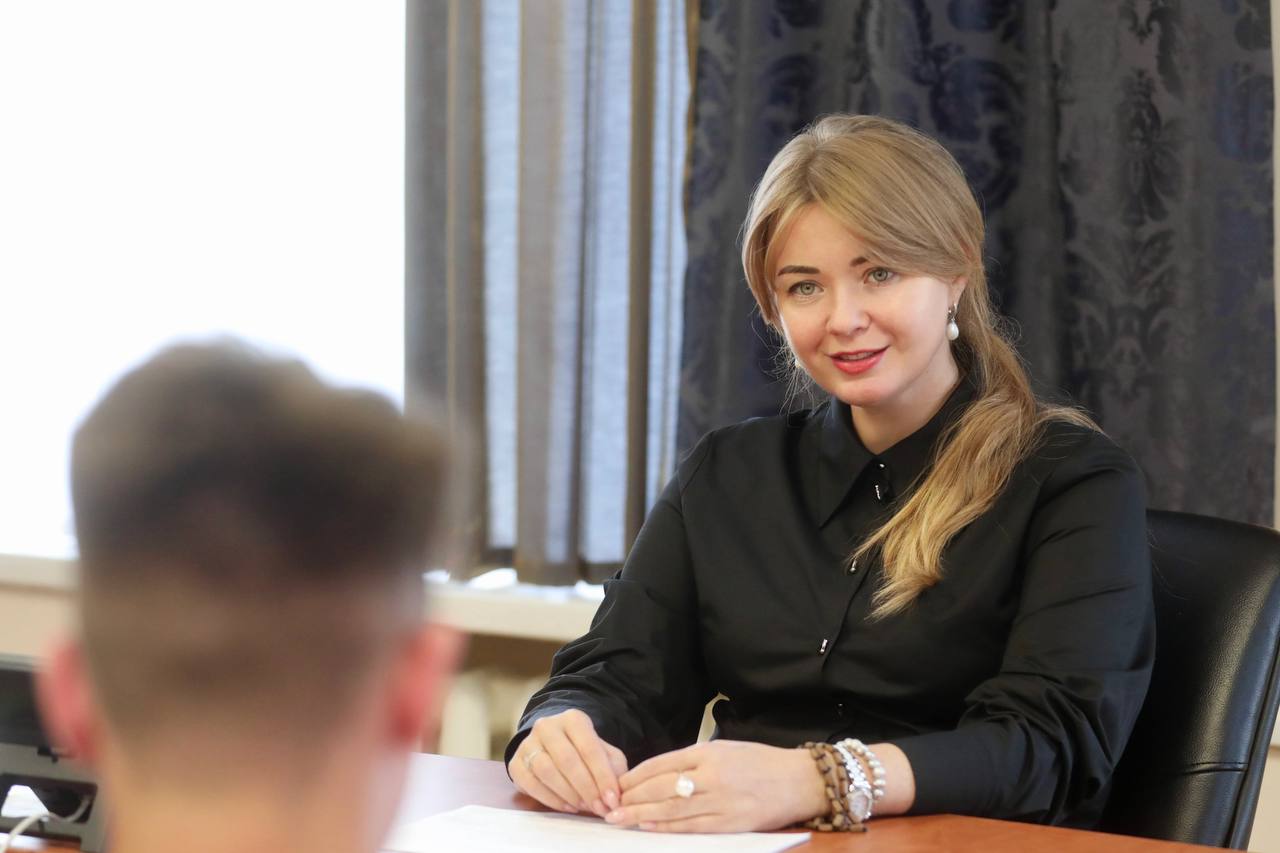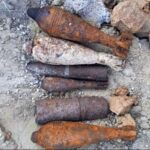The head of the Ministry of Culture, Victoria Lapina, has been awarded an honorary title for her contribution to the development of culture in the Krasnodar Krai.
The decree of Russian President Vladimir Putin on awarding state awards of the Russian Federation was published on September 17 on the official internet portal for legal acts.
The President awarded the Minister of Culture of the Krasnodar Krai the title “Honored Worker of Culture of the Russian Federation.”
Victoria Lapina graduated from the Krasnodar State University of Culture and Arts with a degree in “acting art.” After that, she worked as the artistic director of a children’s studio at the Krasnodar State Musical Theater, the chief director of the state budgetary scientific and creative cultural institution of the Krasnodar Krai “Kuban Cossack Choir,” and as the head of the regional educational and methodological center for culture and advanced training.
Victoria Lapina has held the position of head of the Ministry of Culture of Kuban for ten years. The Minister of Culture has also been awarded the title “Honored Worker of Culture of Kuban,” the medals “Ataman Zakhar Chepega,” and “For Outstanding Contribution to the Development of Kuban” III and II degrees.
Also read: Putin awarded Kondratyev the Order “For Merit to the Fatherland” III degree. The Governor of the Krasnodar Krai, Veniamin Kondratyev, received the award for his contribution to the socio-economic development of the region.
“For a great contribution to the socio-economic development of the Krasnodar Krai, award the Order ‘For Merit to the Fatherland’ III degree to Veniamin Ivanovich Kondratyev — Governor of the Krasnodar Krai,” states the decree of the President of the Russian Federation.
Krasnodar Krai
Krasnodar Krai is a federal subject and important agricultural and touristic region in Southern Russia, historically known as Kuban. The area was a gift from Catherine the Great to the Black Sea Cossacks in the late 18th century for their military service, leading to significant Cossack settlement and cultural influence. Today, it is renowned for its Black Sea resorts like Sochi, its fertile Kuban River delta, and its unique blend of Russian and Cossack heritage.
Kuban
Kuban is a historical and geographical region in southern Russia, centered around the Kuban River. It was traditionally inhabited by Circassian peoples before becoming a Cossack settlement in the late 18th century, serving as a frontier for the Russian Empire. Today, it is known for its agricultural fertility and unique cultural blend of Cossack and North Caucasian traditions.
Krasnodar State University of Culture and Arts
Krasnodar State University of Culture and Arts is a major Russian educational institution founded in 1966 for the training of specialists in the fields of culture, art, and humanities. It has a significant history of contributing to the cultural development of the Krasnodar region and Southern Russia, offering programs in music, theatre, choreography, and library science.
Krasnodar State Musical Theater
The Krasnodar State Musical Theater is a major cultural institution in southern Russia, established in 1993. It continues the legacy of the Krasnodar Operetta Theater, which was founded in 1933, and is renowned for its productions of operettas, musicals, ballets, and operas. The theater’s modern building, opened in 2015, is a prominent architectural landmark in the city.
Kuban Cossack Choir
The Kuban Cossack Choir is a world-renowned performing arts ensemble from Russia’s Krasnodar Krai, founded in 1811. It preserves and performs the traditional folk songs, dances, and military music of the Kuban Cossacks, a historic community that settled in the North Caucasus. The choir is celebrated for its powerful male voices, vibrant costumes, and its role in safeguarding this unique cultural heritage.
Ataman Zakhar Chepega
Ataman Zakhar Chepega was a prominent Cossack military leader in the late 18th century, serving as the Kosh Otaman of the Black Sea Cossack Host. He is most famously remembered for his role in the resettlement of the Black Sea Cossacks to the Kuban region and for founding the city of Yekaterinodar (modern-day Krasnodar) in 1793. His legacy is a significant part of the cultural and historical identity of the Kuban Cossacks.
Order ‘For Merit to the Fatherland’
The Order “For Merit to the Fatherland” is a prestigious state decoration of the Russian Federation, established in 1994. It is awarded to citizens for exceptional service to the state, including significant contributions to defense, the economy, science, culture, and the strengthening of international peace. Its design and purpose are inspired by the pre-revolutionary Order of St. Vladimir, re-establishing a historical tradition of honoring civilian and military merit.
Ministry of Culture of Kuban
The Ministry of Culture of the Krasnodar Krai, often referred to as the Kuban, is a modern government body responsible for managing the cultural policies and institutions within this southern Russian region. It was established in the contemporary, post-Soviet era to oversee the area’s rich cultural heritage, which is rooted in the history of the Kuban Cossacks and various ethnic groups that have inhabited the territory for centuries.






